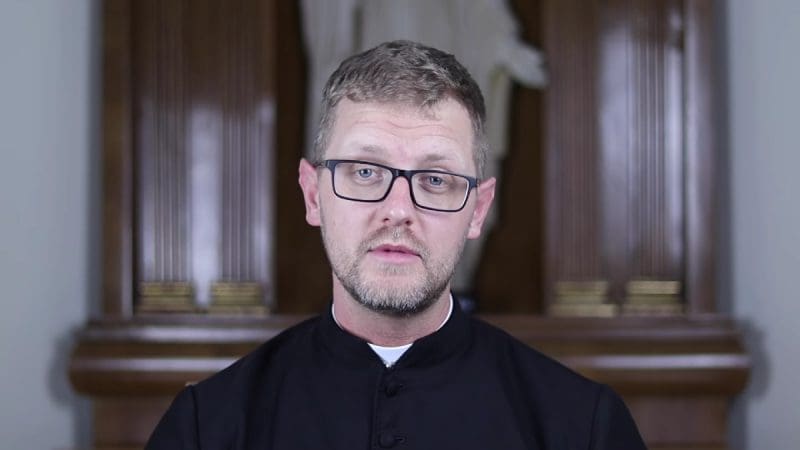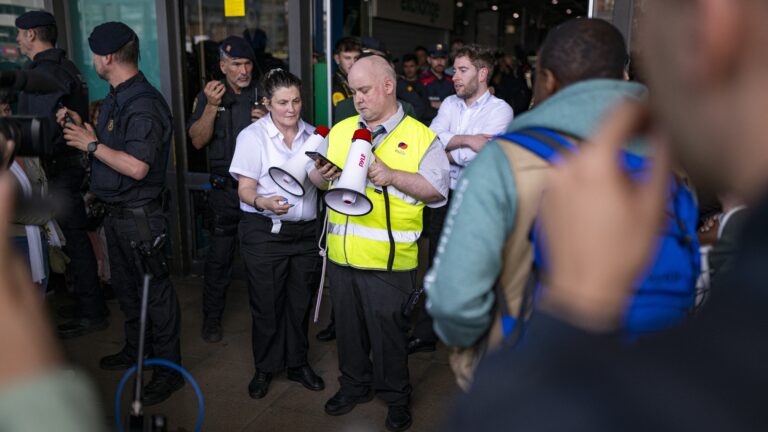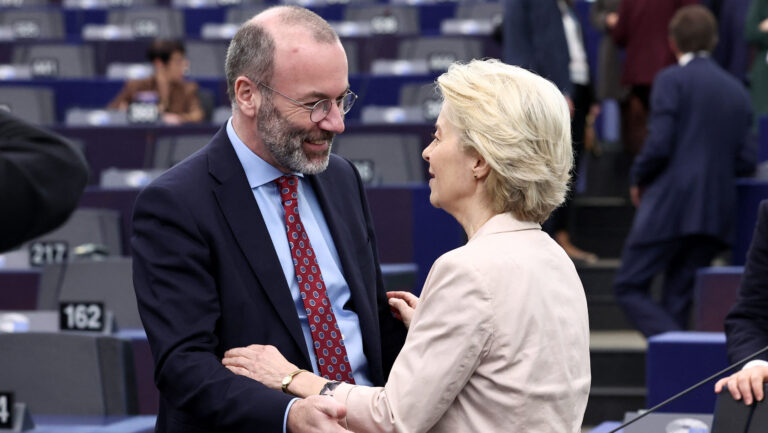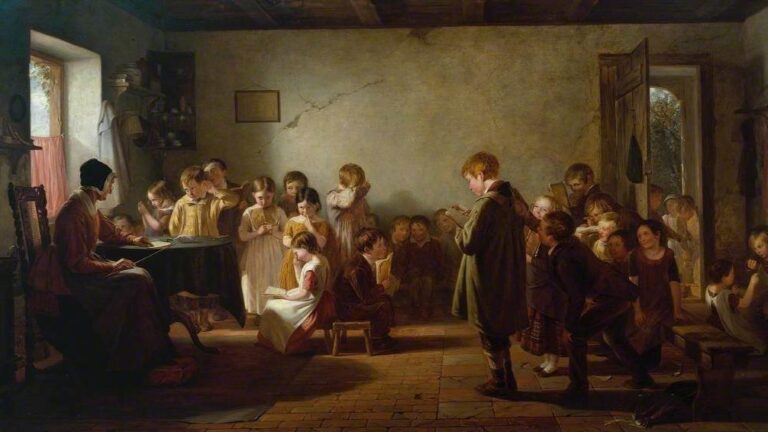This article is not about the András Hodász phenomenon. It is about the media exploitation of the András Hodász phenomenon. But of course, I cannot spare the reader a summary of who András Hodász is and how the Hodász phenomenon came about.
Father Hodász is one of those youngish, presentable, smooth-talking and intelligent clergymen who are (or in his case, used to be) hyped by both their own churches and the media, because they embody what can be somewhat simplistically described as ‘the modern priest who appeals to young people, especially women, and understand the signs of the times.’ He used to be super active on social media, posting an unusually large number of, well, sexy photos of himself, including one in which he is sitting on his motorbike wearing his leathers, looking more like a film star than a Catholic priest. Until recently, he had his own YouTube channel, where he discussed various current topics, offering guidance and insights to young Catholics. He was also giving interviews left and right, especially, but not exclusively, to right-wing media outlets, and was also featured on some talk shows, including one on public television that looked at whether homosexuality could be changed with the help of therapy.
Appearing on that show was the beginning of Father Hodász’s downfall. He was immediately targeted by the liberal press, mocked and despised, because in the now infamous 2019 programme, he voiced his conviction that conversion therapy was a valid and legitimate tool that can help those who are at odds with their homosexuality and ‘wish to change their desires.’
After the immense backlash, which Father Hodász, who it seems to me wants to be loved at all cost, could not tolerate, lo and behold, made a U-turn. He has become one of those priests who advocate for the mainstreaming of LGBTQ issues in the church, and who, at the same time, deny the existence of the gay lobby. In an op-ed, for instance, he has suggested that young people struggle with so many issues in Hungary that worrying about how gender ideology might harm them is silly.
Father Hodász became the victim of the bigoted Catholic church
RFE’s mission statement claims that their journalists ‘provide what many people cannot get locally: uncensored news, responsible discussion, and open debate. RFE/RL strives to meet the highest standards of objective journalism and report the facts, undaunted by pressure or attempted influence.’ Well, the reporter who signed the 17 August interview has obviously not read her employer’s mission statement, because what she did is quintessential activist journalism. And, I must presume, this conduct is approved of by RFE, since the interview would not have been published otherwise.
Well, someone like Father Hodász, with a personality clearly bordering on narcissism, could be expected to sooner or later put his perceived victimhood and the alleged sorry mental state of the Hungarian people in general into the larger context of, guess what? The evil doings of the Orbán government! And he was not only enabled, but led to do so by the platform he chose to speak with – Radio Free Europe Hungary.
In the interview titled ‘Hungarian Society is Gravely Ill’ Hodász made a series of sweeping statements. There are ‘plenty of traumatised individuals’ in Hungary, he declared. Then, without much ado, he added: ‘Real political success can only be achieved by building on anxiety. It is no coincidence that the political messages that achieve real results are those that trigger the basic anxiety already in us even more, enhance it even more, magnify it even more. Because I know that society is unfortunately ill.’
Hodász, who highlighted twice in the interview that he has degree in communication (who would have thought?), went on to say that a parallel reality has been created where facts don’t matter, only what is said in the media matters. ‘Simply, the reason we are sitting here, in the studio of Radio Free Europe, is that if there is no such thing as a free and critical press that can be anywhere and ask any question,…then a parallel reality is created.’
It is one thing that Father Hodász posed as an omniscient social scientist who is equipped to produce perfect diagnoses of Hungarian society. It is one thing that he bemoaned the lack of a free and critical press whereas he has been bashing the government (and his fellow Hungarians who are not enlightened as he is and who, alas, do not have a degree in communication) to a number of free and critical media outlets for months. It is another thing that the RFE reporter posed blatantly leading questions to him, making the whole interview a mockery of serious journalism.
Let me illustrate my point by citing verbatim some of the questions.
For one, when asking him to comment on the criticism he received after he admitted he had been on antidepressants for a while, the reporter remarked: ‘Why is it not natural in this part of the world that if one has a mental health problem, one should seek professional help?’It is not natural in Hungary to seek professional help when having a psychological problem – says who? What kind of a sweeping statement is that? Also, what did the reporter expect Father Hodász to respond exactly to that question? And in what capacity?
But there is more. After Hodász spoke about the government’s messaging that builds on people’s anxieties, the activist, disguised as a reporter, commented:
‘They are creating or proposing imaginary or real enemies. And at the same time, their message, their communication is that there is a defender?’ I mean, seriously? That is nothing short of putting words in the interviewee’s mouth, while proving to him, and to the readers, that his viewpoint and assessment are 100 per cent shared by the interviewer, totally uncritically.
But here comes the best part. After Father Hodász’s brief, consenting reply to the above rhetorical and leading question, the reporter went on:
‘Is this so even if this defender keeps failing? Even if forty thousand people die during the coronavirus pandemic? If the economy is about to collapse?’ That is not a question. It is a masterly way of hammering home the opposition’s message that the government has actually failed in all of its endeavours: it has mismanaged the pandemic (it did not), and the economy is on the brink of collapse (a lie). Father Hodász played along, and commented: ‘It has to be wrapped in such a way that you can also serve negative news positively, taking the edge off it or putting it in a different context. Forty thousand is because we don’t count the dead like in the decadent West, forty thousand isn’t even forty thousand. It’s the opposition’s fault anyway.’
What she did is quintessential activist journalism
RFE’s mission statement claims that their journalists ‘provide what many people cannot get locally: uncensored news, responsible discussion, and open debate. RFE/RL strives to meet the highest standards of objective journalism and report the facts, undaunted by pressure or attempted influence.’ Well, the reporter who signed the 17 August interview has obviously not read her employer’s mission statement, because what she did is quintessential activist journalism. And, I must presume, this conduct is approved of by RFE, since the interview would not have been published otherwise.
The reporter did not even pretend to be neutral or at least objective. She was not curious to learn more about his interlocutor, to understand or further explore his ideas. She just wanted Hodász to reaffirm her biases and preconceptions. What about the norm of objectivity? What about challenging the interviewee? What about confronting him with differing viewpoints? Well, none of those things matter when one engages in advocacy instead of ‘responsible discussion’.








